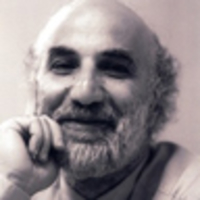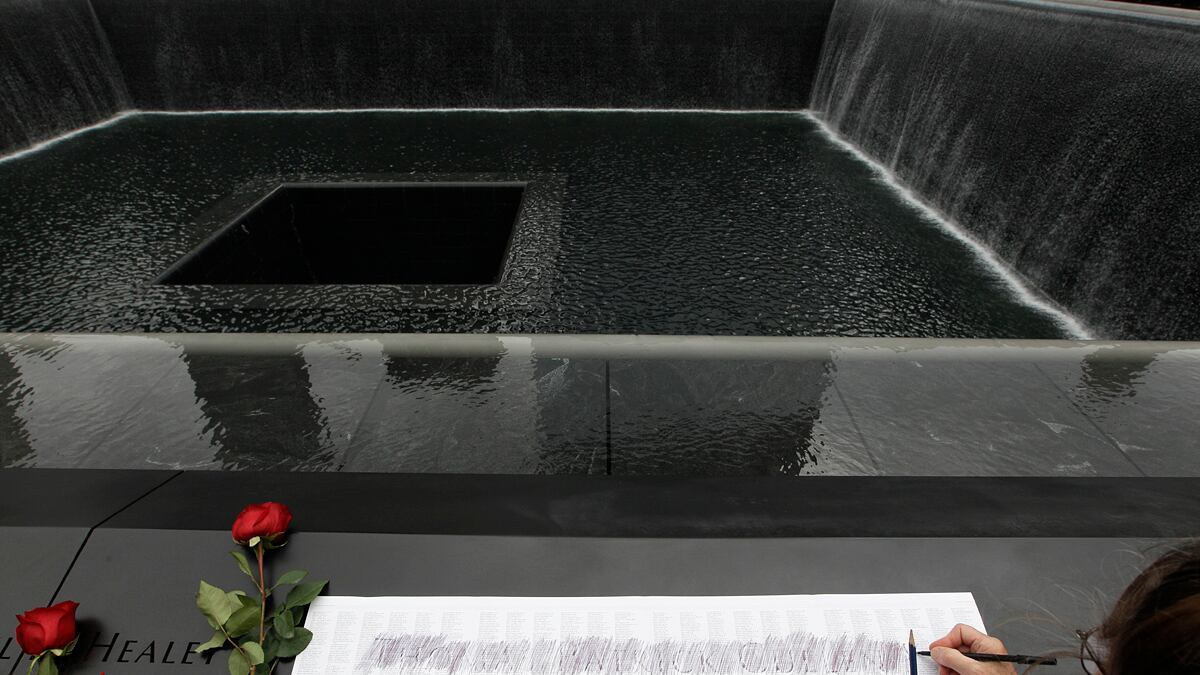The most amazing thing about remembering 9/11 was that there was hardly anything said about the assailants. We recalled the horror, but generously. Perhaps now and then, I thought, too generously. The American capacity to forgive and forget is without parallel. A source of pride and strength, but perhaps on occasion for worry as well.
Nothing was said on the 10th anniversary of 9/11 of Mohamed Atta and Ziad Jarrah, two of the 19 Arabs who assaulted America on that day of grief. Nothing was said of the radical Islamist preachers who had filled the air with sedition and bigotry in the decade prior to 9/11. And those financiers and “charities” who had sustained the jihad were entirely forgotten. The regimes that had winked at the terror—the enablers, the "peerless" Charles Hill called them—were given a pass as well. The grief was remembered in the manner akin to recalling a natural disaster. "Tragedy" was the word most invoked as we called back that day.
I searched in vain, through the medium of Arabic, my ancestral language, for a compelling and honest Arab retrospective of 9/11. I found none that spoke to me, that spoke to that day. No surprise that the occasion served as a way for Arabs pronouncing on America yet again. The anniversary, said one Saudi pundit with an air of worldliness, had come to “resemble a major consumer festival, similar to that of Christmas or the summer seasons. The mass of books, documentaries, news programs, and commemorative souvenirs relating to the occasion have created an ‘industry’ around the Sept. 11th anniversary, of which there are many beneficiaries.” The title of a column in The Daily Star, the Beirut-based English-language paper, by the journalist Rami Khouri, tells the story: “A decade on, does the U.S. quite get it?” America comes up short in Khouri’s analysis, its people “unable or unwilling to adequately or honestly explore why this happened to them—because they still fail to address the wider context of the world in which dwell both the criminal attacker and the honest victim.”

In other words, we are in the land of moral equivalence. We had “overreacted” to 9/11, Khouri maintains; we had fed the flames of radicalism with wars in Afghanistan and Iraq, and strengthened the ties with the security services of Arab states. Vast treasure and effort had been poured into trying to “learn more about Islam." The effort was touching, Khouri writes, but misplaced. America had erred; it had looked away from “the centrality of the Arab-Israeli conflict as a leading and persistent source of discontent and radicalization among publics across the region.”
I should say that I have known Rami Khouri for a good many years. He is of Palestinian ancestry, and I believe that he is an American citizen, and now makes his home in Lebanon, heading a public-policy program at the American University of Beirut. He has steady access to NPR broadcasts and other news programs. He is representative of a broad segment of the Arab intellectual class who have grown up on a steady diet of reflexive anti-Americanism. This class couldn’t look deep into the Arab distress, the Arab pathologies. It was safer, and more convenient, to hack away at the United States. American liberalism, deep in self-flagellation, and consumed with Bush hatred by 2004, made ample room for this sort of voice from Arab lands.
To the extent that the Arab world paused, took time from its self-absorption, and looked back at 9/11, the effort entailed exoneration and denial. The commentary from Saudi Arabia was keen on establishing the innocence of the Saudi realm, its distance from Osama bin Laden–wasn’t he of Yemeni ancestry, after all?–and from the 15 Saudis aboard the planes of 9/11. Nor, for a good decade, have Egyptians owned up to any responsibility for Ayman al-Zawahiri and Mohamed Atta. During the Hosni Mubarak years, the dictatorship had banned all serious commentary on that subject, for the trail would have led to the doorstep of pharaoh himself, and the double game he played, stoking anti-Americanism, while telling Americas behind closed doors that he was a partner in the war on terror. The post-Mubarak phase is naturally all consumed by the need for Egypt to find a new way.
Broadly conceived, Arab culture is less about guilt than about shame. (I know, we are supposed to stay away from cultural analysis because, this would be “essentialism”—the great sin in postmodernist thinking.) In the aftermath of 9/11, the Arab political class may have been embarrassed by the phenomenon of Arab-Islamist terrorism. The more Westernized among the Arabs had squirmed in Western airports and forums; they had worried whether they and their children would be welcomed abroad. The embarrassed were to recover in a hurry. No sooner had America struck into Iraq than it was déjà vu all over again, as Yogi Berra would have put it. Iraq gave those thrown off-balance by 9/11 an opportunity to return to the familiar play of belligerent self-pity and anti-Americanism.
America was virtually alone in the aftermath of 9/11. Beyond the Arabs, there was much of Western Europe, and it hadn’t grieved for America’s wound. There was a celebrated commentary on Sept. 12, 2001, in Le Monde, “Nous Sommes Tous Americains” ("We Are All Americans") by that paper’s editor, Jean-Marie Colombani. So eager were we for evidence of sympathy for our country, so striking was the title, that we took that article at face value. But even that piece was hedged, and was hardly reflective of the anti-Americanism that had been blowing at will in France. There was no shortage of animus toward the United States. We had unleashed on France the forces of “mondialisation”—globalization; we were corrupting their language and their cuisine. Our pension funds were buying their assets; the Anglo-Saxon doctrines of political economy were battering the French way. Colombani himself was to take back the gift he had offered. In 2004, he returned to his old title, this time with a question mark, “Are We Still All American?” We had had his sympathy, and the sympathy of the people of his bent, but we had squandered it in “preemptive” wars and by the zeal with which we pursued the campaign against terrorism.
From Paris, there came a dispatch of a commemoration of the 10th anniversary of 9/11, across from the Eiffel Tower. More than a thousand people came, and one organizer, a businessman, expressed his sympathy. “We want the Americans to know we love them, that we are their allies, that we remember and that we share their sorrow.” We can’t quibble with this; we can’t reject that sort of sentiment. But we owe it to those who were struck down on that clear September morning to remember, with precision, to call back both the exact words and the insinuations of what was said about that day of premeditated evil.






